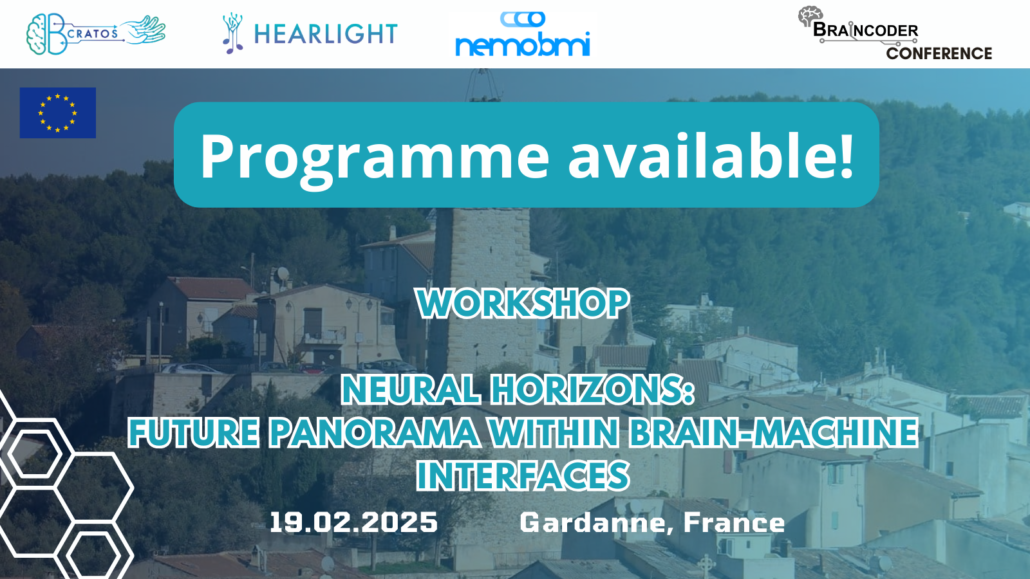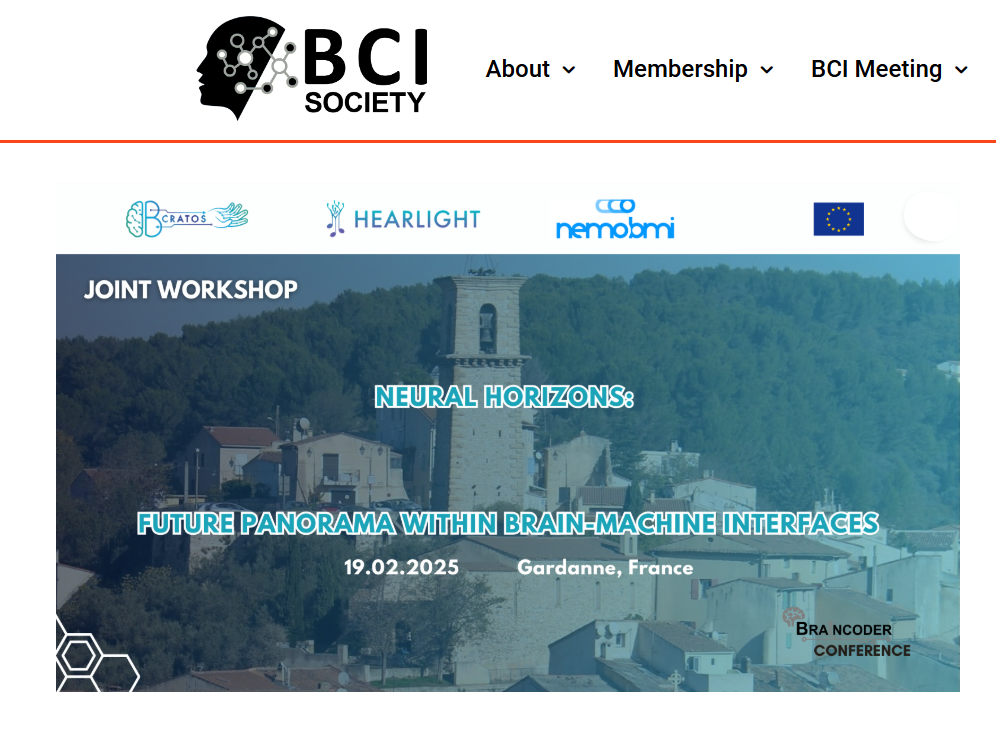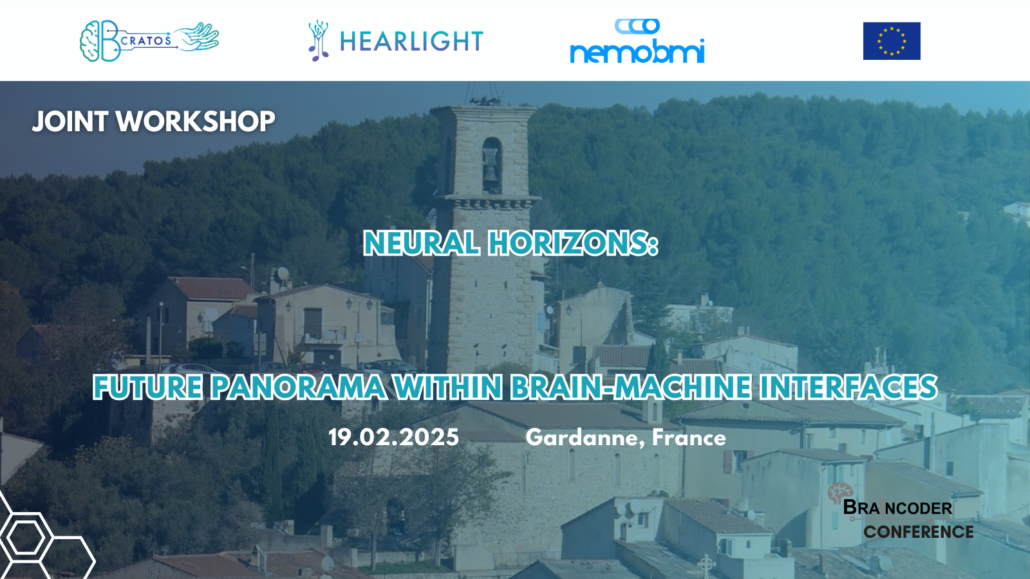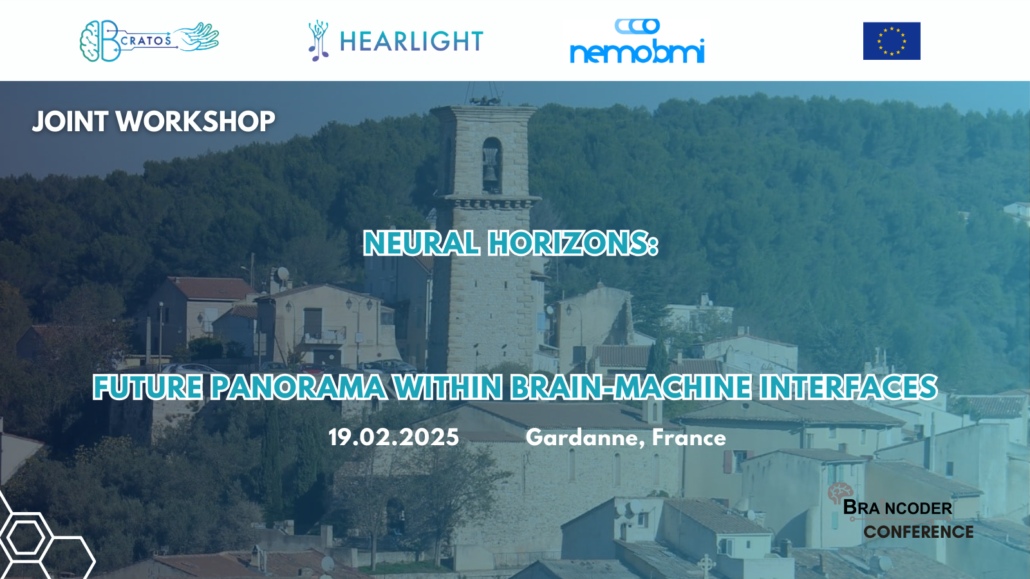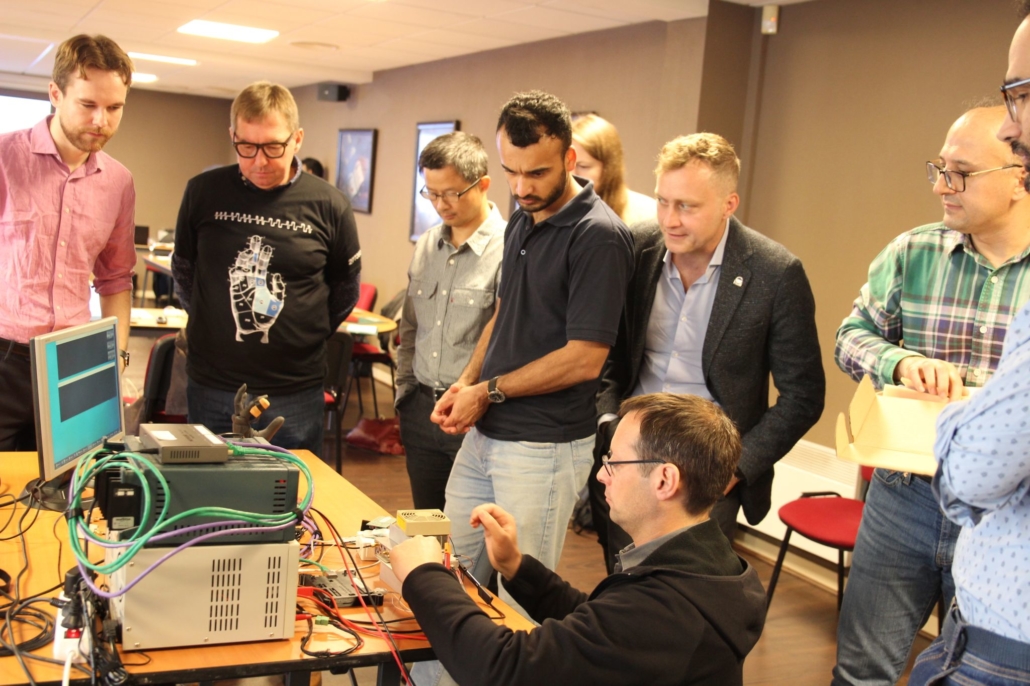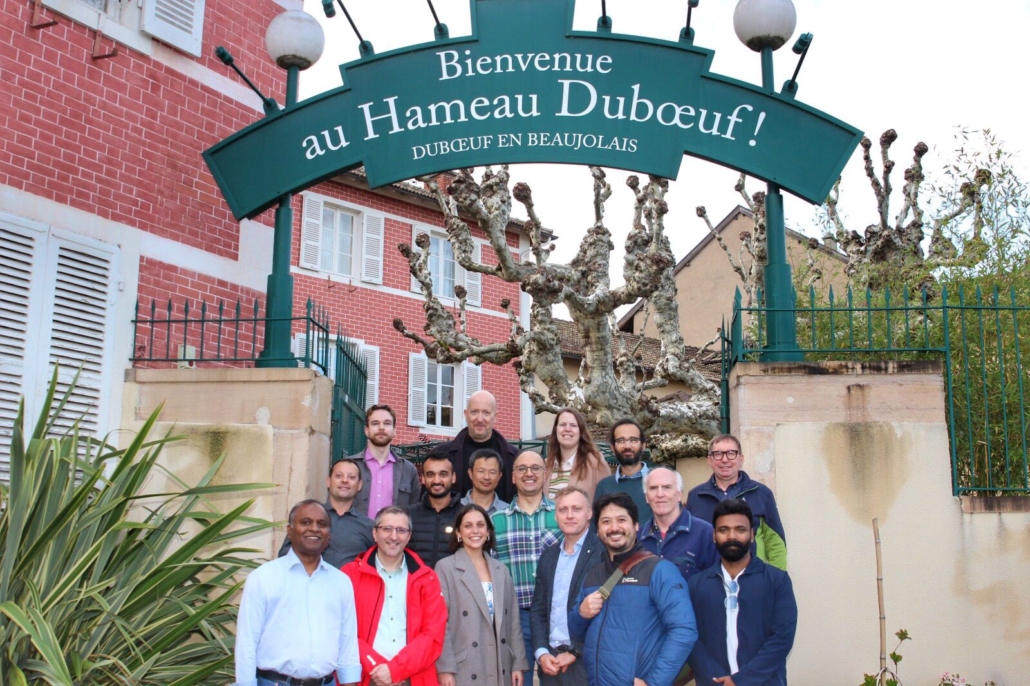B-CRATOS at GEMIC 2025
The 16th German Microwave Conference (GeMic) will be held between 17th and 19th March 2025 in Dresden, Germany. This gathering will host a special B-CRATOS session, organised and chaired by Ilangko Balasingham from NTNU and Robin Augustin from Uppsala University.
The session will focus on Body Area Communication, which encompasses advanced technologies enabling seamless interaction between devices in or on the human body, such as wearables and implants. These systems leverage wireless power transfer and innovative techniques like backscatter communication to optimize energy efficiency. Emerging methods, such as fat intra-body communication, exploit human tissue properties to enhance signal transmission.
Please discover more about the B-CRATOS session and the whole program here!
Precision Neuroscience Raises $102 Million to Advance AI-Powered Brain Implant
In breaking news, BCI startup Precision Neuroscience has raised over 100M USD to further develop their brain implant and progress in clinical trials!
Precision Neuroscience Corporation has developed an innovative thin film cortical surface electrode, akin to a high resolution version of ECG grids commonly used to diagnose and treat disorders such as epilepsy. Importantly, they have developed a minimally invasive surgical process to implant (or later remove!) the electrodes, in theory reducing surgical and recovery time, and thus, decreasing patient risk.
This is an exciting development for the entire field, as it shows, along with Synchron-inc-, Neuralink, and Blackrock-neurotech, that the business community has confidence that Brain Computer Interfaces will imminently produce a positive impact on human health.
It is clear that the future of BCI will be big data combined with machine learning and innovative integration with the body. The B-CRATOS project is also developing next generation BCI technologies with this in mind: wireless technologies to handle BIG neural data with low-power, wire-free implantable systems.
Find the full article here!
B-CRATOS on DEEPSYNC’s platform
Since several months, the DEEPSYNC platform is online to give visibility to the Communities of Practices, their member projects and their stories.
It was a pleasure for B-CRATOS to be featured within the platform. In particular, our coordinator Robin Augustine was happy to contribute with his interview in which he explained the early stages of the project, the innovative aspects and the importance of the consortium, which is crucial for a complex project involving multiple technologies.
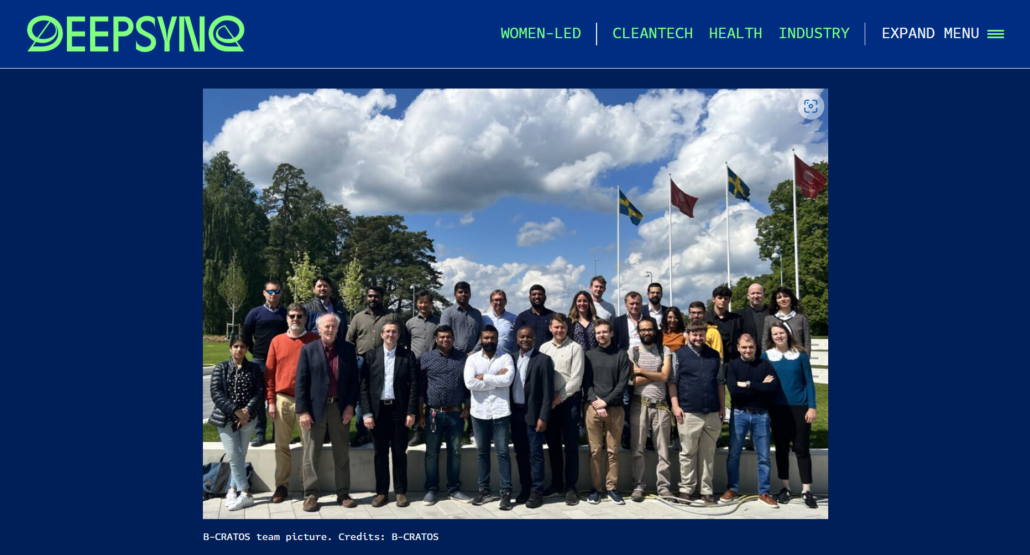
Find out more about the interview on the Deepsync platform!
Workshop in Gardanne on February 19th: programme available!
Attend the Joint Workshop Neural Horizons: future panorama within Brain-Machine Interface on February 19th 2025 in Gardanne in the framework of the Braincoder Conference.
You can already find some information about the three sessions and their speakers and register at the event on this page.
Download the agenda here!
The Workshop Neural Horizons: future panorama within Brain-Machine Interface is on the BCI Society’s website
The Joint Workshop Neural Horizons: future panorama within Brain-Machine Interface is now published on the Brain-Computer Interface (BCI) Society website. It will take place on 19th February, 2025 in Gardanne, France in the frame of the Braincoder Conference.
The B-CRATOS, HearLight and NEMO-BMI European projects are honoured to have the Workshop represented by this international organisation whose aim is “to foster research leading to technologies that enable people to interact with the world through brain signals”.
Thank you BCI Society for allowing us to contribute to your purpose and promote our research!
Please find further information on BCI Society’s website.
Keynote speaker – 2024 International Conference on Big Data Analytics in Bioinformatics
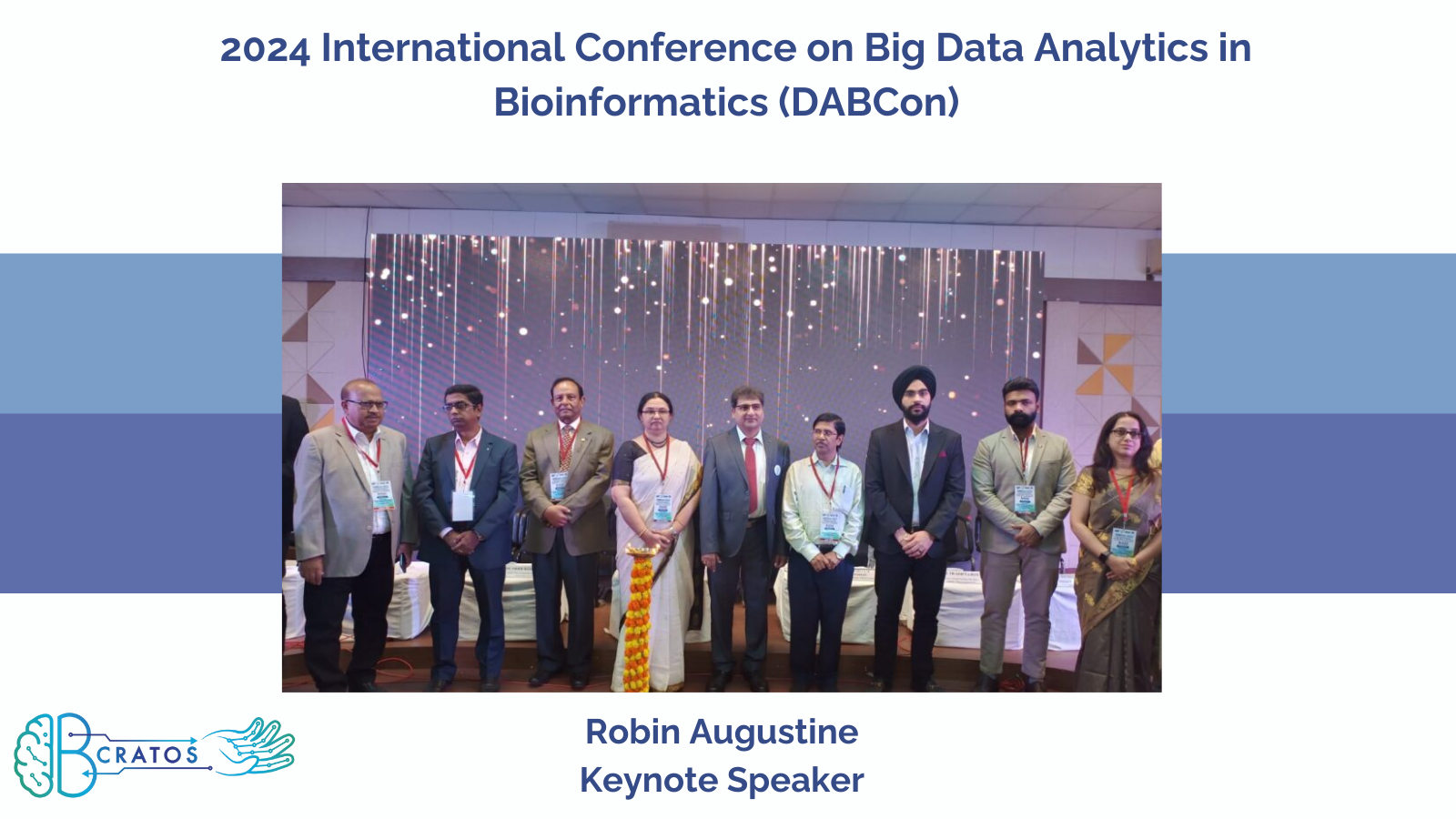
Robin Augustine from Uppsala University was a keynote speaker at the 2024 International Conference on Big Data Analytics in Bioinformatics (DABCon) in Kolkata – India.
He presented his work with his talk on “Fat – Intra Body Communication: A new paradigm for intra-body communication technology enabling reinstatement of lost functionalities in human”.
It was good opportunity to exchange with experts on the subject and to showcase B-CRATOS!
Video overview of the event: *Narula Institute | of Technology Inaugurates 3-Day | International Conference on Big Data Analytics
Website: Dabcon | NIT | Home
Discover and register now for the Joint Workshop in Gardanne
On 19th February, 2025 a significant joint workshop organised by three major leaders in Brain-Machine Interfaces will take place in Gardanne, France. This workshop is a setellite event of the Braincoder conference.
The agenda will include speakers among the B-CRATOS partners and experts from the Institut Pasteur, the CEA-Clinatec and the EPFL.
More information in the event page
You can register here!
Controlling prosthetic hands more precisely by the power of thought
B-CRATOS is excited to announce the publication of the paper Accurate neural control of a hand prosthesis by posture-related activity in the primate grasping circuit, co-written principally by our partner Andres Agudelo-Toro and Hans Scherberger. This was a multi-year effort to decode the principles of grasping actions in the brain.
Andres, a neuro-engineer at DPZ, worked with primates and collaborators in Canada and Taiwan to achieve this breakthrough towards improving BCIs. This paper – published in Neuron on 16 October 2024 – presented for the first time the neural control of the posture of a multidimensional prosthetic hand, paving the way for future interfaces exploiting this additional information channel.
For further information, please refer to the full article and the press release published by our partner Deutsches Primatenzentrum GmbH!
B-CRATOS Consortium Meeting in Lyon
On 16 and 17 October 2024, the B-CRATOS consortium was invited to hold its Consortium Meeting near Lyon, à Romanèche-Thorins. After a warm welcome by Paul Wanda and Cyril Beguet, our colleagues from Blackrock Microsystems Europe and organisers of the whole event, we started our discussions on the project status and the objectives for the coming months.
It was also a very important opportunity for all of us to see the demo system bench, a significant step for the development of B-CRATOS: after several minutes of tweaking and a bit of background stress, BME and NTNU managed to get it working and impress all the partners present!
They were two very intense days that included many debates on the following steps but also the needs of a possible extension of B-CRATOS. All with the wise advice of our Advisory Board members!
Thanks to all the partners present for their contribution and a special thank you to Blackrock for welcoming us warmly and organising the event down to the last detail, letting us discover this region of France and many of its peculiarities!

